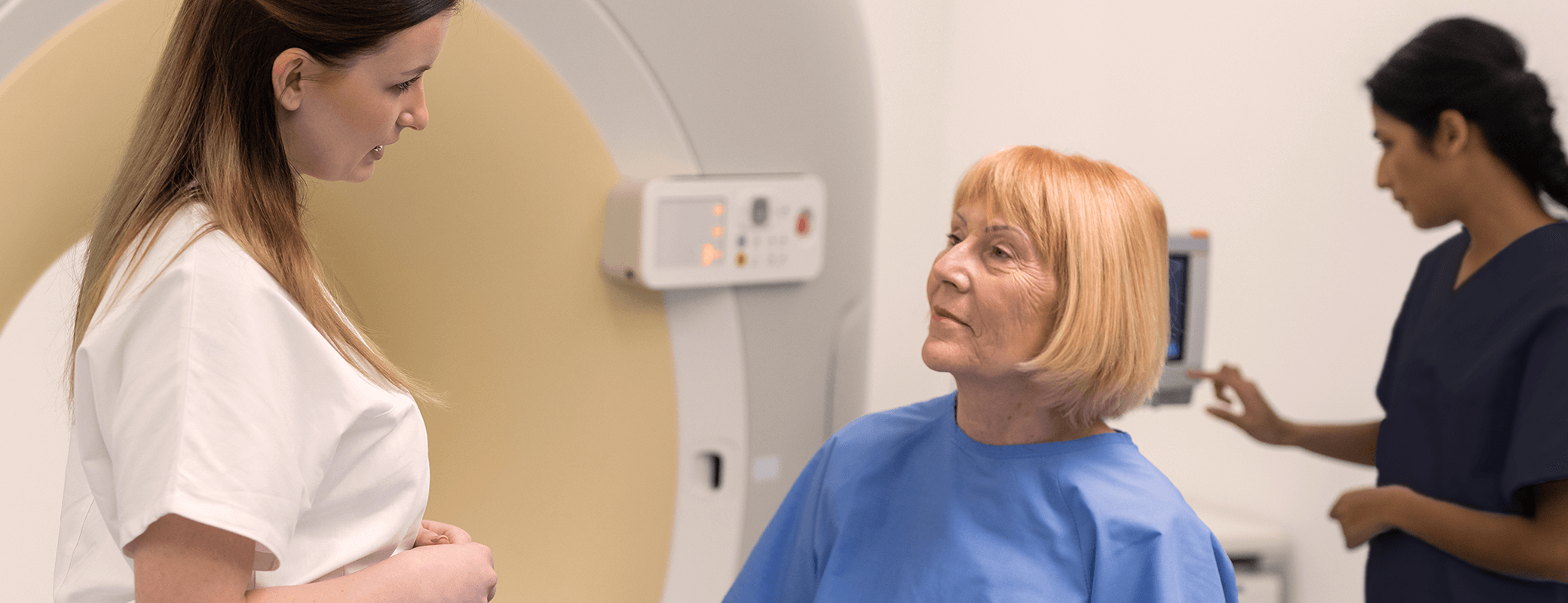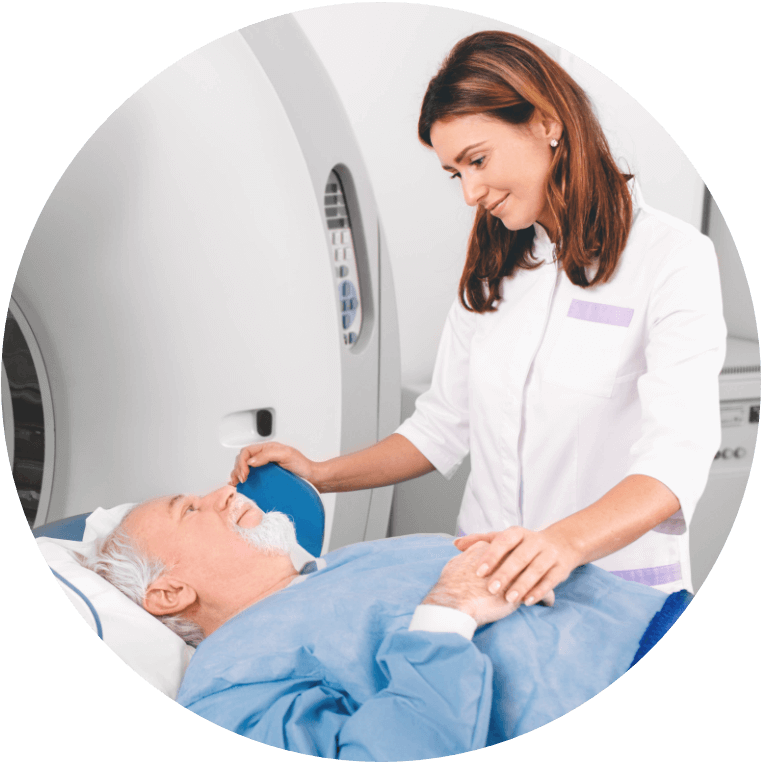
What is an MRI or MRA?
An MRI, or magnetic resonance imaging, uses radio waves, a magnetic field, and computer technology to create high-resolution images of the inside of the body. An MRA is an MRI that specifically focuses on blood vessels and vascular structures in the human body.
Contrast MRI
An MRI may require injectable contrast solutions or dyes to achieve more detailed images and diagnostic results based on specific factors. MRI contrast works by altering the local magnetic field in the tissue being examined. Normal and abnormal tissues respond differently to this slight alteration, giving differing signals. These varied signals are transferred to the images, allowing enhanced visualization of many different types of tissue abnormalities and disease processes.

What to Expect
You will lie comfortably on your back during the procedure or on your stomach for a Breast MRI. While the scan is in progress, the MRI system goes through the body point by point, building up a two- or three-dimensional map of tissue types. It then integrates all this information together to create 2-D or 3-D models of the scanned body parts.
MRI scans require you to hold very still for extended periods of time. Even the slightest movement of the area being scanned can cause distorted images that must be retaken. MRI exams typically range in length from 20 to 40 minutes, although some procedures may take longer.
The MRI machine makes a noise that sounds like a continual, rapid hammering. You will be given earplugs or music headphones to muffle the noise. Your technologist will talk to you through the exam, and you will have a call bell to squeeze if you need immediate attention.
Although there is no risk of radiation exposure from using MRI, safety precautions are required while in the MRI suite because the extremely strong magnet will attract any metal objects taken into the scan room. For example, paperclips, pens, keys, scissors, money clips, or any other small objects can be pulled out of pockets and off the body.

Fuji Echelon Oval 1.5T
Wide-bore MRI

Fujifilm Oasis Open MRI 1.2T
Open MRI

Philips Ingenia Ambition 1.5T
Wide-bore MRI
Preparing for Your Exam
We encourage you to come to your appointment in comfortable, loose-fitting cotton clothing without metal fasteners or metal lining. You may be asked to change at the site into a gown or medical scrubs for your exam. Unless you are told otherwise, you may follow your regular daily routine and take medications as usual.
Inform your technologist if you have any implants or any medical or electronic devices in your body because they may interfere with the exam or potentially pose a risk. For safety purposes, jewelry and other accessories should be left at home, if possible, or removed before the MRI scan. Please remove any metallic items, including:
- Jewelry, watches, credit cards, and hearing aids to prevent damage
- Pins, hairpins, metal zippers, and similar metallic items
- Removable dental work
- Pens, pocket knives, and eyeglasses
- Body piercings and jewelry
- Glucose monitor
Women should inform their physician and the MR technologist if there is any possibility that they may be pregnant. Pregnant patients should discuss safety concerns with our imaging centers before their appointment.
